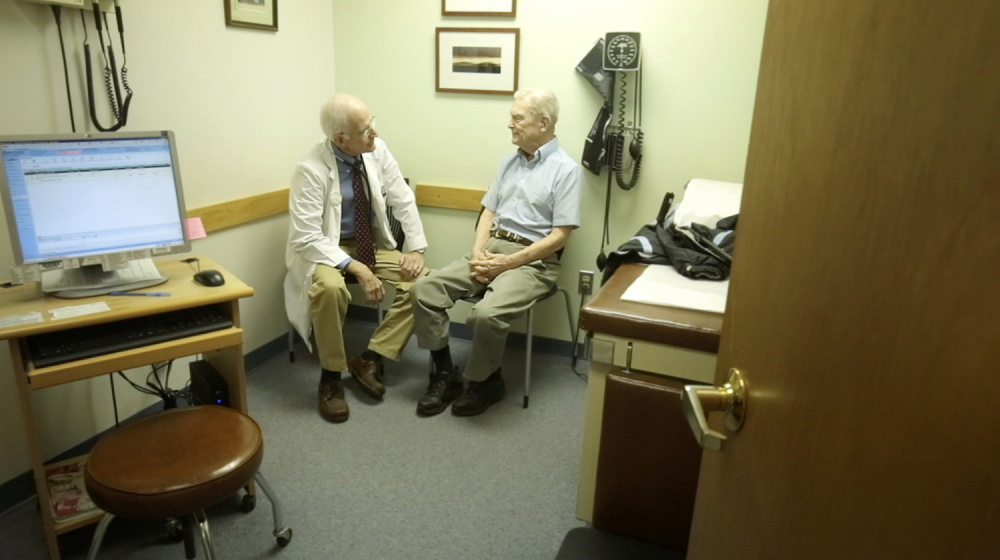It sounds both simple and fair: Raise taxes on those most able to pay, and use the money to improve education.
However, while the idea of raising taxes by 3 percentage points on annual incomes above $200,000 and funneling that money into additional local school aid may sound straightforward, in reality Question 2 on this November’s ballot is far from simple, and it fails the fairness test.
In my role as the executive responsible for recruiting talented physicians to serve in our local Maine communities, the unintended consequences of this law will greatly complicate our work on behalf of patients to provide high-quality professionals to deliver their health care.
NO MONOPOLY ON QUALITY OF LIFE
Now, it’s true. The men and women who come to Maine to practice medicine consider more than just income tax rates when making that decision. Quality of life, including quality schools, and professional opportunities play a big role.
But we are not the only state with great recreational assets, good schools or even the only state with relatively low crime and little real traffic. And it’s worth mentioning that neighboring New Hampshire has many of the same attributes and no income tax at all.
If our state income tax is the highest in the nation for those earning between $200,000 and $540,000, as would be the case with Question 2’s passage (for the highest incomes over $540,000, California would be the one state to tax more), that’s going to matter. And it will be an issue for the young physicians we at MaineHealth try to recruit, who on average are graduating with educational debt in excess of $250,000.
Admittedly, it won’t matter to every physician. Some will still come. But there’s a problem: We are about to fall off a demographic cliff when it comes to our physicians.
DOCTORS IN HIGH DEMAND
For example, across our health care system, more than a quarter of the doctors are over 60. Nationally, the Association of American Medical Colleges predicts a shortage of 46,000 to 90,000 physicians by 2025. The shortage won’t be evenly distributed across specialties. For instance, the medical college association cites primary care doctors and surgeons as among those likely to be in short supply.
Competition for doctors is about to grow fierce, and Maine can’t afford to put itself at a disadvantage with state income tax rates that exceed 10 percent, even if taxes are just one of many factors weighing on a doctor’s decision to come here.
Think about what this could mean to Maine people, especially in our rural areas, where it is already a challenge to recruit young doctors, who these days often seek a broader array of practice opportunities available in more densely populated areas. Having to wait or travel for even a simple procedure will certainly affect our health and quality of life. It will also hurt the local economy, as money spent on that medical procedure won’t stay in the community.
Physicians aren’t the only professionals who would be impacted negatively by Question 2’s passage. Researchers, engineers, executives and entrepreneurs will all have a disincentive when faced with the question of bringing their talents to Maine.
But what about our schools? Don’t we need to invest in our students?
There has been a good deal of debate with regard to whether Question 2 really gets at solving the funding problems plaguing our schools, or whether it simply pumps more money into a broken system of “have” and “have-not” school districts. In fact, as I understand it, over 130 Maine school districts – predominately in poor and rural communities – will not benefit from this initiative at all, given the school funding formula.
ANOTHER WAY TO IMPROVE SCHOOLS
Maybe we do need more money for our rural and poor schools, but it is not clear that this approach will provide it. And have we considered the unintended consequences, such as exacerbating the challenge of physician recruitment?
And maybe professionals would appreciate good, well-funded schools, and in that sense, investing in education could help us bring the best and brightest to Maine. But are we really sure this highly prescriptive citizen initiative is the best way to make our schools better and more equitable?
These sound like tough questions, and they are. Question 2 is not a simple and straightforward way to invest in education. Rather, it is a blunt instrument ripe with unintended consequences and uncertainty as to whether it would do what supporters say it would. Mainers should vote “no” on Question 2.
Send questions/comments to the editors.



Success. Please wait for the page to reload. If the page does not reload within 5 seconds, please refresh the page.
Enter your email and password to access comments.
Hi, to comment on stories you must . This profile is in addition to your subscription and website login.
Already have a commenting profile? .
Invalid username/password.
Please check your email to confirm and complete your registration.
Only subscribers are eligible to post comments. Please subscribe or login first for digital access. Here’s why.
Use the form below to reset your password. When you've submitted your account email, we will send an email with a reset code.